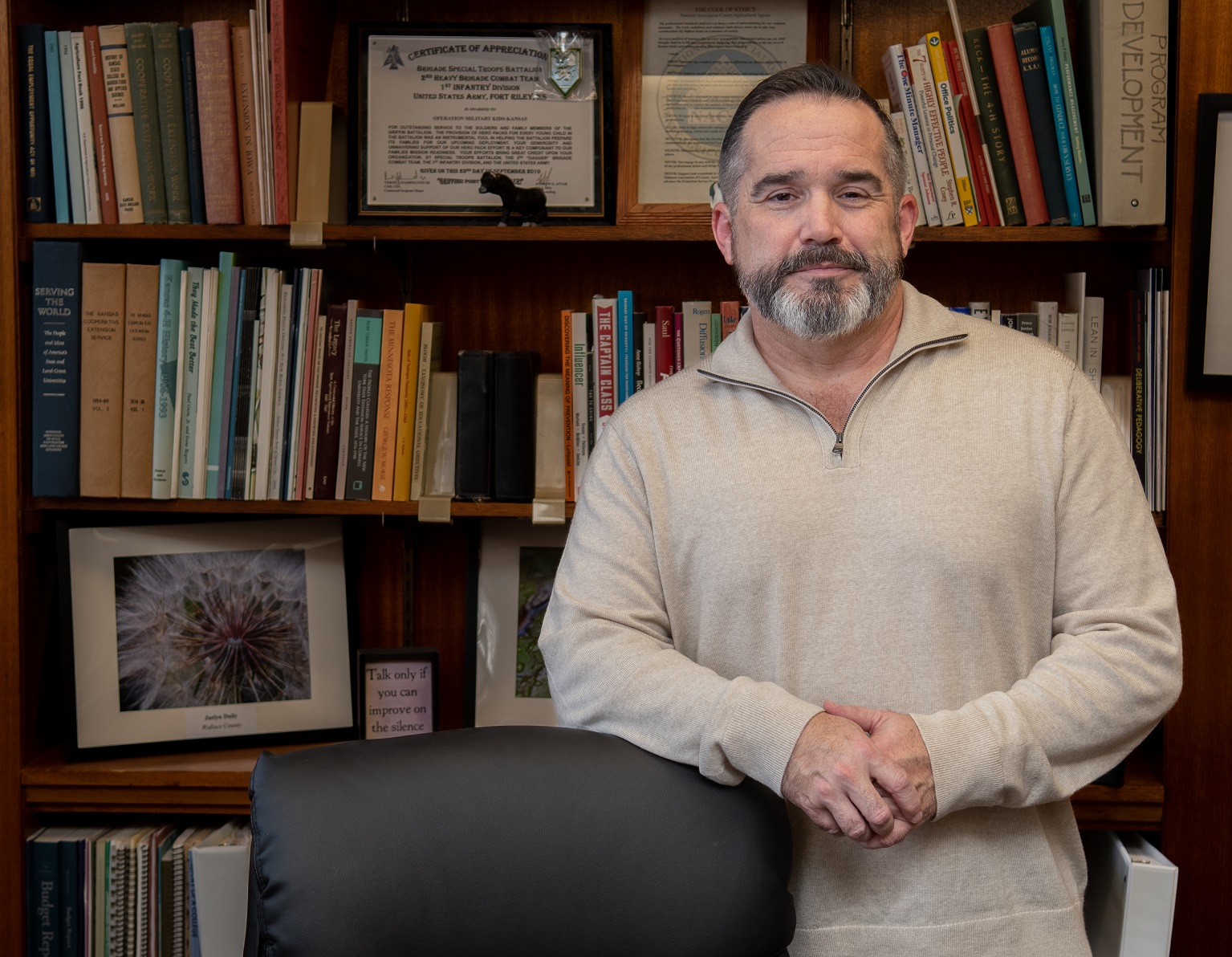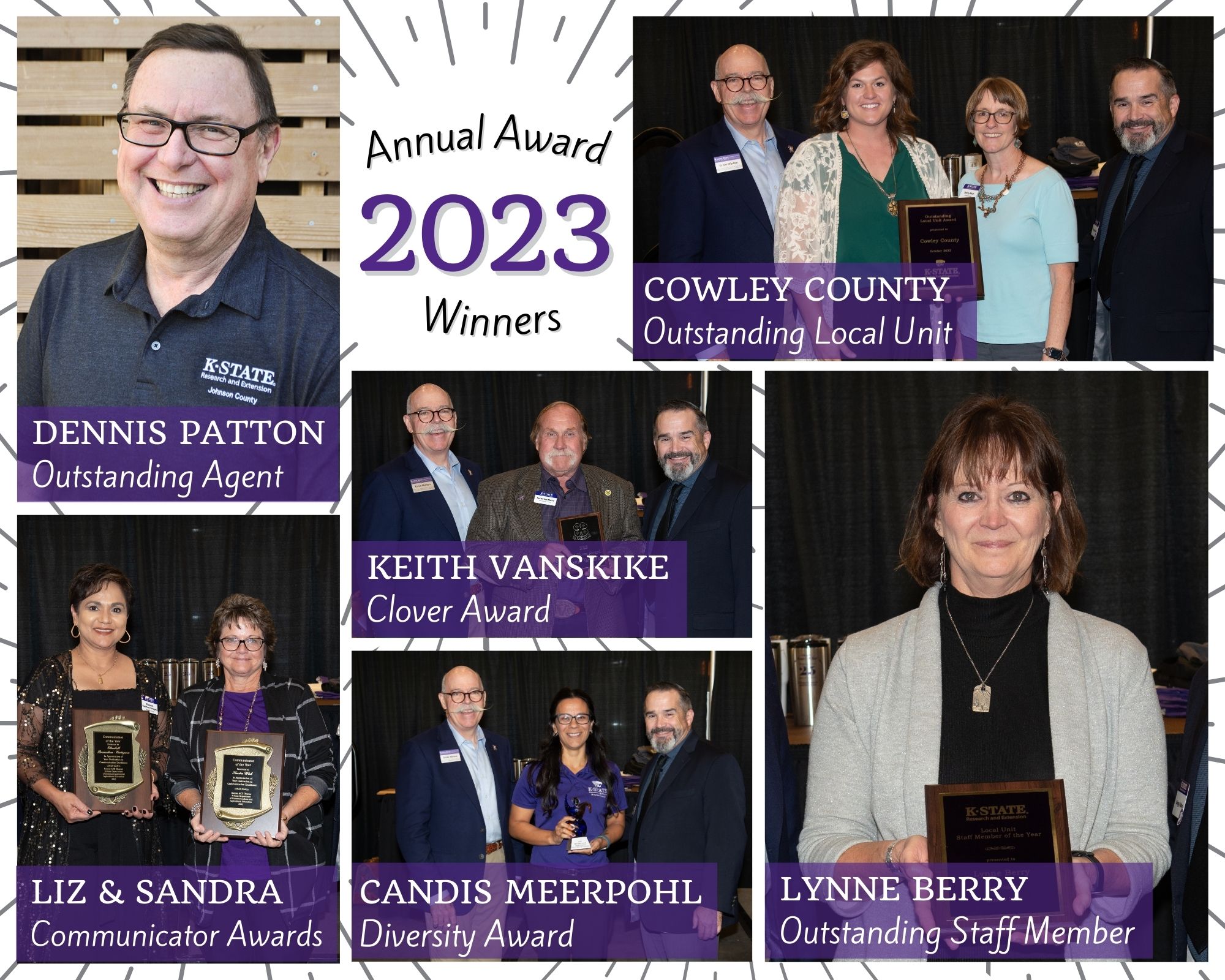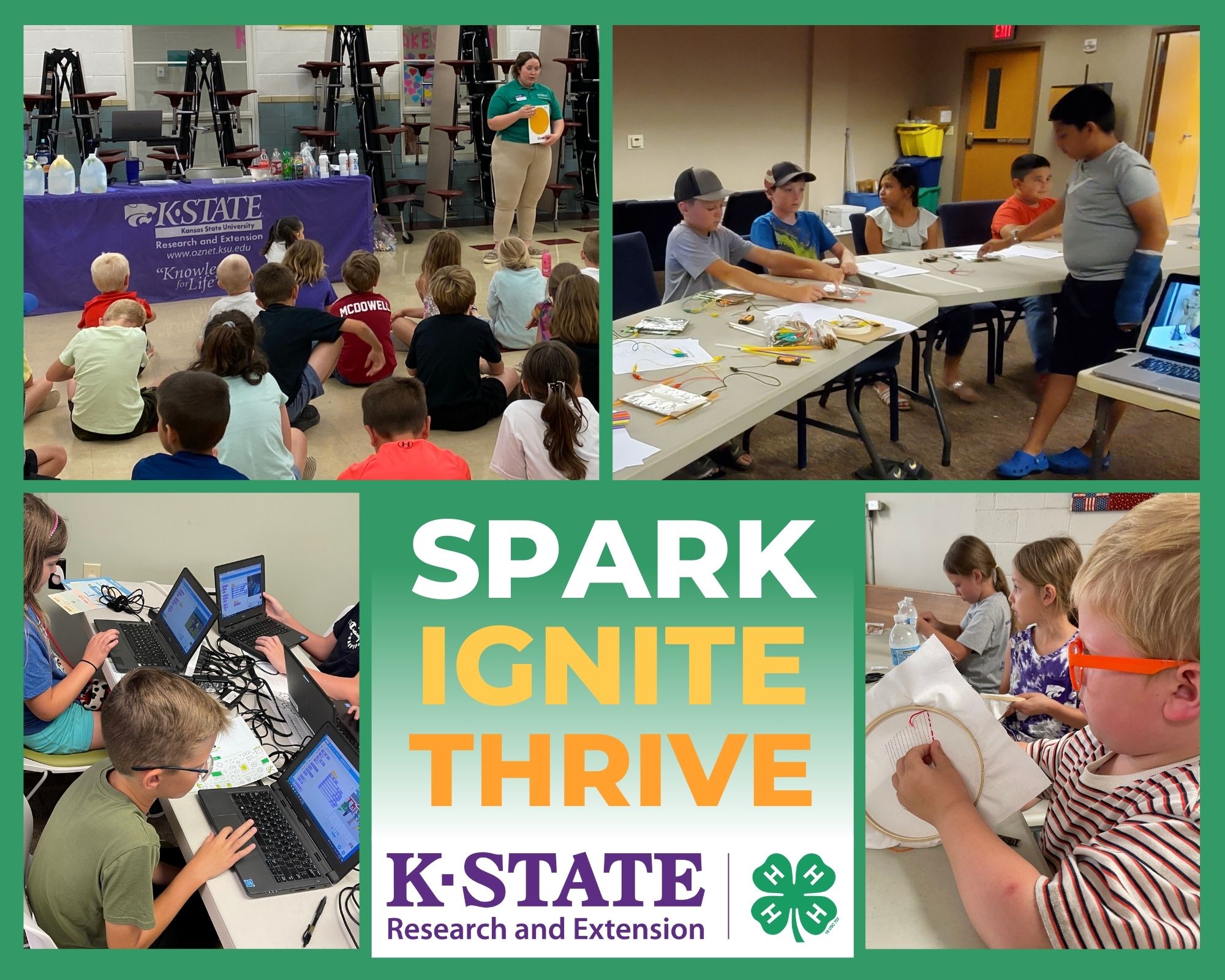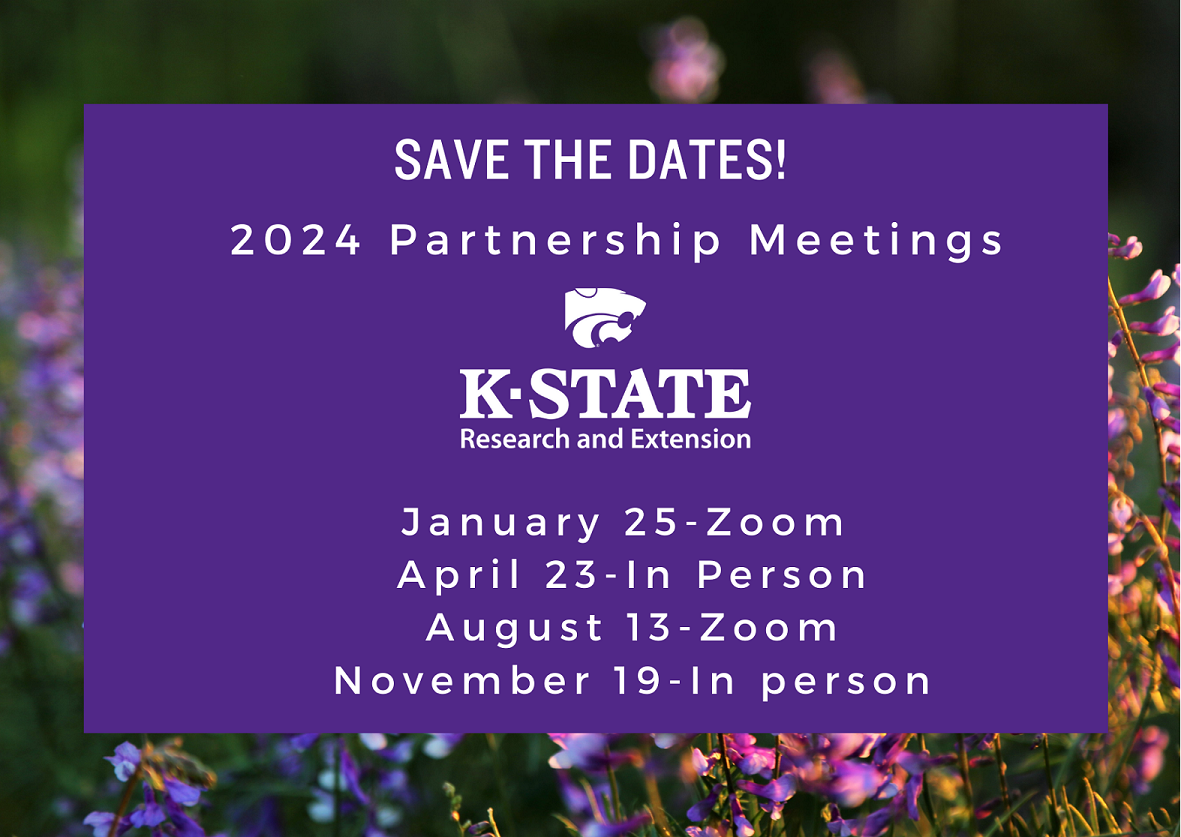Board Excellence Newsletter, January 2024
- From the director for extension: Welcome
- Board member orientation
- SEAC election results are in
- Local unit staff recognized with awards
- Collecting accurate data helps KSRE
- Program spotlight: Kansas 4-H Summer Engagement Grant
- Partnership meeting save the dates

Congratulations to those serving on local extension boards. You are partners with Kansas State University as we serve Kansans with effective educational programming that addresses the critical issues of your local unit. As a board member, you are responsible for working in partnership with K-State Research and Extension to transact the business of the local K-State Research and Extension program. This includes the oversight of educational programming, the hiring and supervision of extension agents, public relations, and developing the budget.
We have developed a number of resources to help you carry out those responsibilities. The Extension Board Resources website contains a variety of resources, including tools and guidance, to help board members understand their role, host effective meetings, develop budgets and more. We’ve also created Board Leadership Modules that explore important topics such as annual civil rights training, agent performance reviews and reaching new audiences that can be included as part of the monthly board meeting or through self-directed learning.
If you are new to the role or a returning board member, I would encourage each of you to:
- Participate fully in regularly scheduled board meetings. Take time to review the minutes, financial statements and agent reports before each meeting.
- Participate in the quarterly KSRE Partnership Zoom Meetings. The Partnership Meetings are designed to help us better communicate about new initiatives and issues facing our system. The next meeting is scheduled for Thursday, January 25 at 7 p.m.
- Become familiar with each agent and his or her programs. This will enable you to participate fully in the performance review process for all the agents in your local unit.
- Review the Excellence in Board Leadership Assessment that provides an overview of the responsibilities of local unit boards throughout the year. The assessment can be used early in the year for planning. At the end of the year, it serves to assess the progress that the board and extension professionals made throughout the year.
Thank you for your service to K-State Research and Extension! We look forward to partnering with you to provide quality educational programs that improve lives, livelihoods, communities, and the state.
Congratulations on your election to your local extension board. A statewide Board Member Orientation will be held via Zoom on Feb. 12 at 6:30 p.m. The training will be 35-45 minutes. Your task as a board member comes with many roles and responsibilities. This session will provide you with resources to assist you in your success as a board member.
New and continuing board members are welcomed and encouraged to participate. Please plan to join in.
Contact your local extension director for the Zoom link.
Congratulations to the new State Extension Advisory Council members! The nominations for SEAC were very much appreciated, as is your time and dedication to KSRE.
The SEAC is made up of 21 members from local units across the state that serve three year terms. They meet formally twice a year, in February and August. These members represent the local unit partner that works with KSRE administration to provide advice, suggestions, and ideas regarding the complex issues that are prevalent across the state. SEAC members also serve as advocates at the state level and can sometimes get special assignments related to extension objectives.
New SEAC Board Members:
- Eastern Region
- Mark Jirak, Atchison County.
- Steve Morrison, Southwind District.
- Central Region
- Denise Stein, Central Kansas District.
- One position remains vacant.
- Western Region
- Michaelle Bliss, Golden Prairie District.
- Dustin Quenzer, Thomas County.
- Metropolitan Units
- Sarah Farlee, Douglas County.
These folks will begin their new roles with the next SEAC meeting in Topeka on Feb. 19–20.
Again, congratulations and welcome to the new State Extension Advisory Council members!

Each year at our annual conference, faculty and staff are recognized for outstanding programming and contributions to extension excellence. Agents and staff from local units who were recognized in 2023 include:
- Dennis Patton, Johnson County
Outstanding Local Unit Extension Professional - Lynne Berry, Riley County
Outstanding Local Unit Employee - Candis Meerpohl, Shawnee County
Diversity Award - Keith VanSkike, Twin Creeks District
4-H Clover Award - Elizabeth Brunscheen-Cartagena, Sedgwick County
and Sandra Wick, Post Rock District
Communicator of the Year Awards
The Cowley County extension team was recognized as the Outstanding Local Unit of 2023. Cowley County Extension makes the best better for community youth but also connects people with the resources they need.
By working collaboratively, agents Becky Reid and Sarah LaGrone, office professional Cindy Stephens, and program assistant Sarah McAlister provide exceptional extension programs across the subject matter spectrum. While they’ve taken cuts in tax dollars to support local programs, they’ve worked with their board and other community partners to raise thousands of dollars to support their work.
This team has “raised the bar” for other extension units to serve their communities with creative programs and excellence.
Each year we ask staff and local board members to review parity data to determine whether the local unit is reaching a diverse population with extension programming compared to the local unit’s census data. To create the local unit parity report, we rely on data that local unit agents collect about their program participants.
Because K-State Research and Extension is a recipient of federal funding, the United States Department of Agriculture’s National Institute of Food and Agriculture requires that we collect the race, ethnicity, and gender information from our program participants. Consequently, agents are required to ask program participants to self-report this information.
There are several ways staff can collect the data. Participants can be asked to complete a paper form during the program event, data can be collected via electronic survey, or it can be collected when participants register for a program.
Collecting the information at the time of registration, using an electronic registration method is the recommended method. No matter how the information is collected, participants can choose not to respond, but it is the extension professional’s responsibility to ask.
As your extension board reviews parity data in the coming months, discuss with your agents the methods they are using to collect demographic data from participants. It is important so that we can continue to secure federal funding for extension.

Through the Kansas 4-H Summer Engagement Grant, 82 summer interns were hired to provide programs designed to help youth explore their interests and to develop their “sparks” or interests in the areas of STEM, creative arts, agriculture and natural resources, family and consumer sciences, and personal development.
The Kansas 4-H Summer Engagement Grant, awarded by the Kansas Department of Education, is a three-year grant to address the impact of learning loss due to lost instructional time during the COVID-19 pandemic.
Last summer, Kansas 4-H partnered with SNAP-Ed, Kansas Cosmosphere and Kansas Corn Growers Association to provide new and different curriculum.
More than 27,611 youth were reached through the Summer Engagement Grant program – an increase of 5,000 youth more than from 2022. Additional results include:
- 715 programs with 1,576 sessions were taught in the areas of STEM, creative arts, agriculture and natural resources, family and consumer sciences, and personal development.
- 2,587 hours of direct instruction were provided to Kansas youth.
- 82 summer interns learned the value of youth-adult connection, were able to explore education as a career and connected with community partners in city and rural populations across Kansas.






